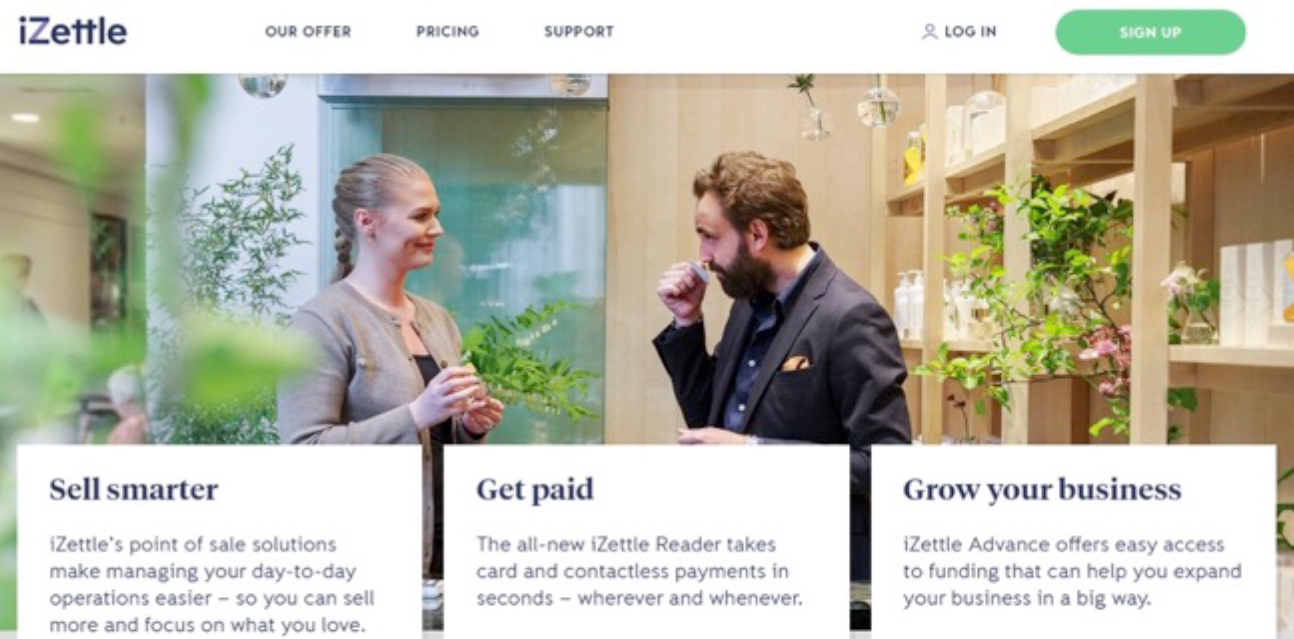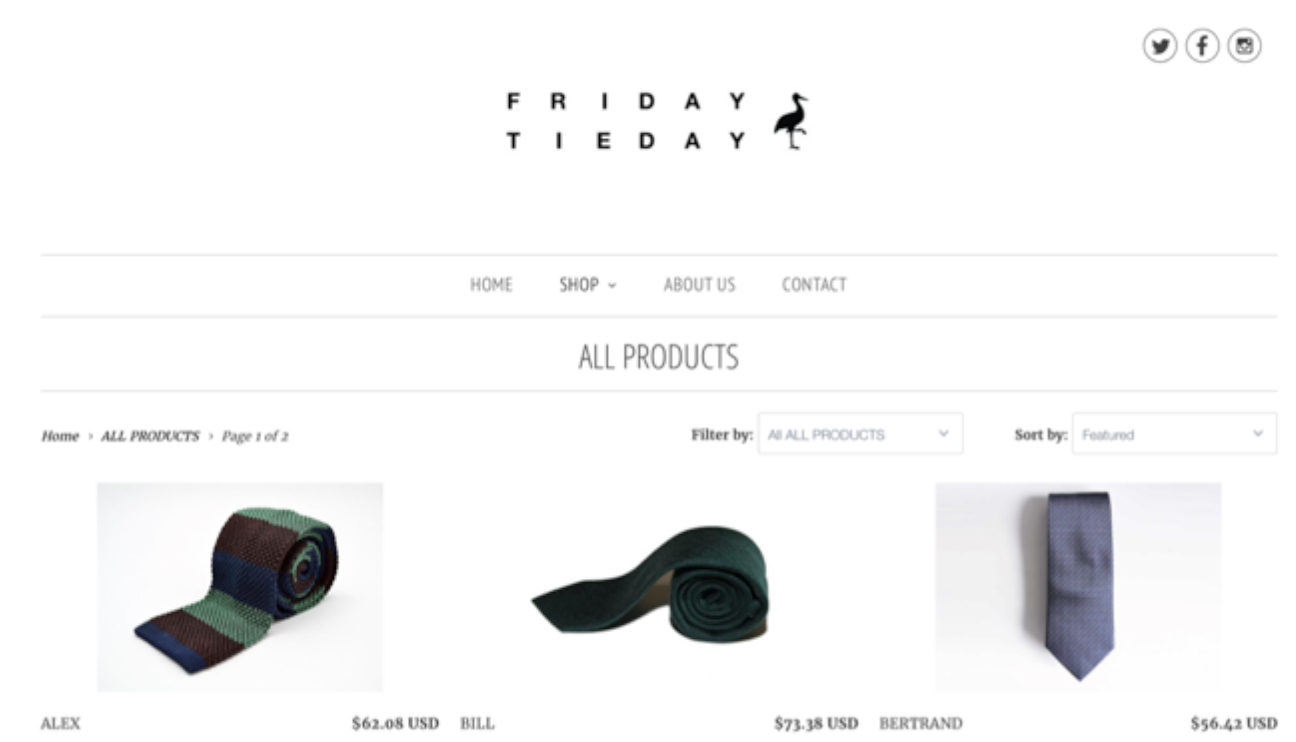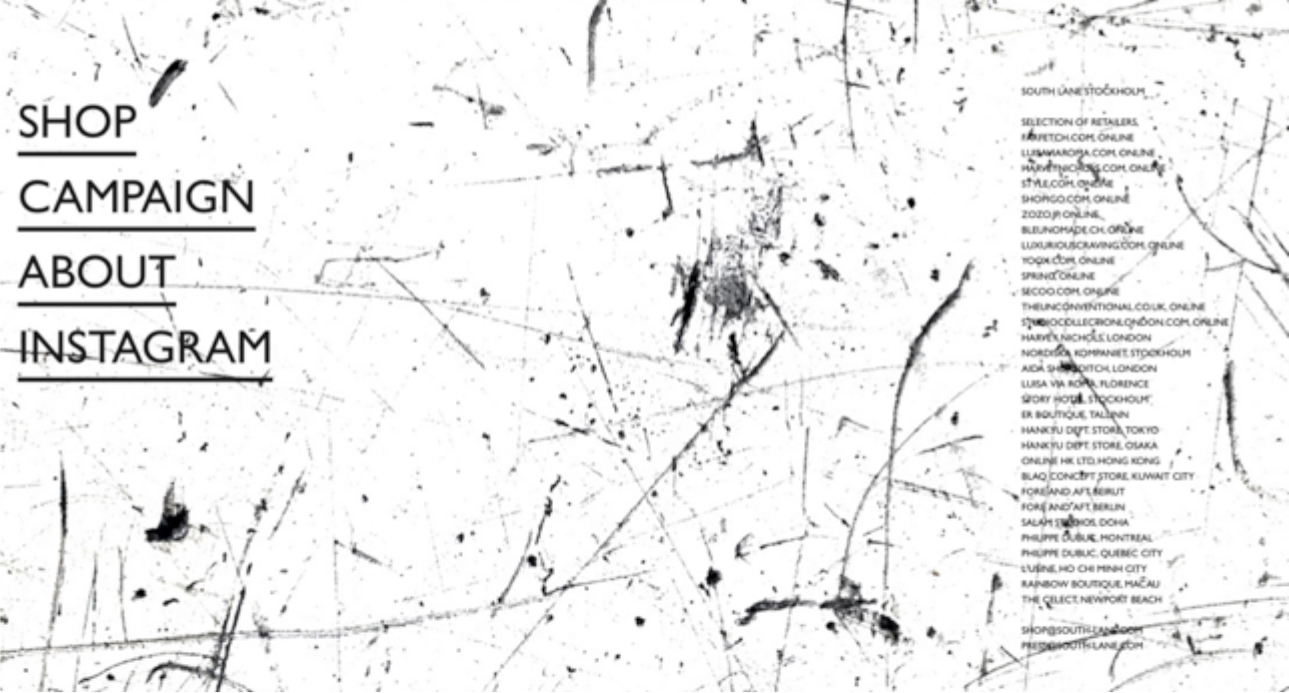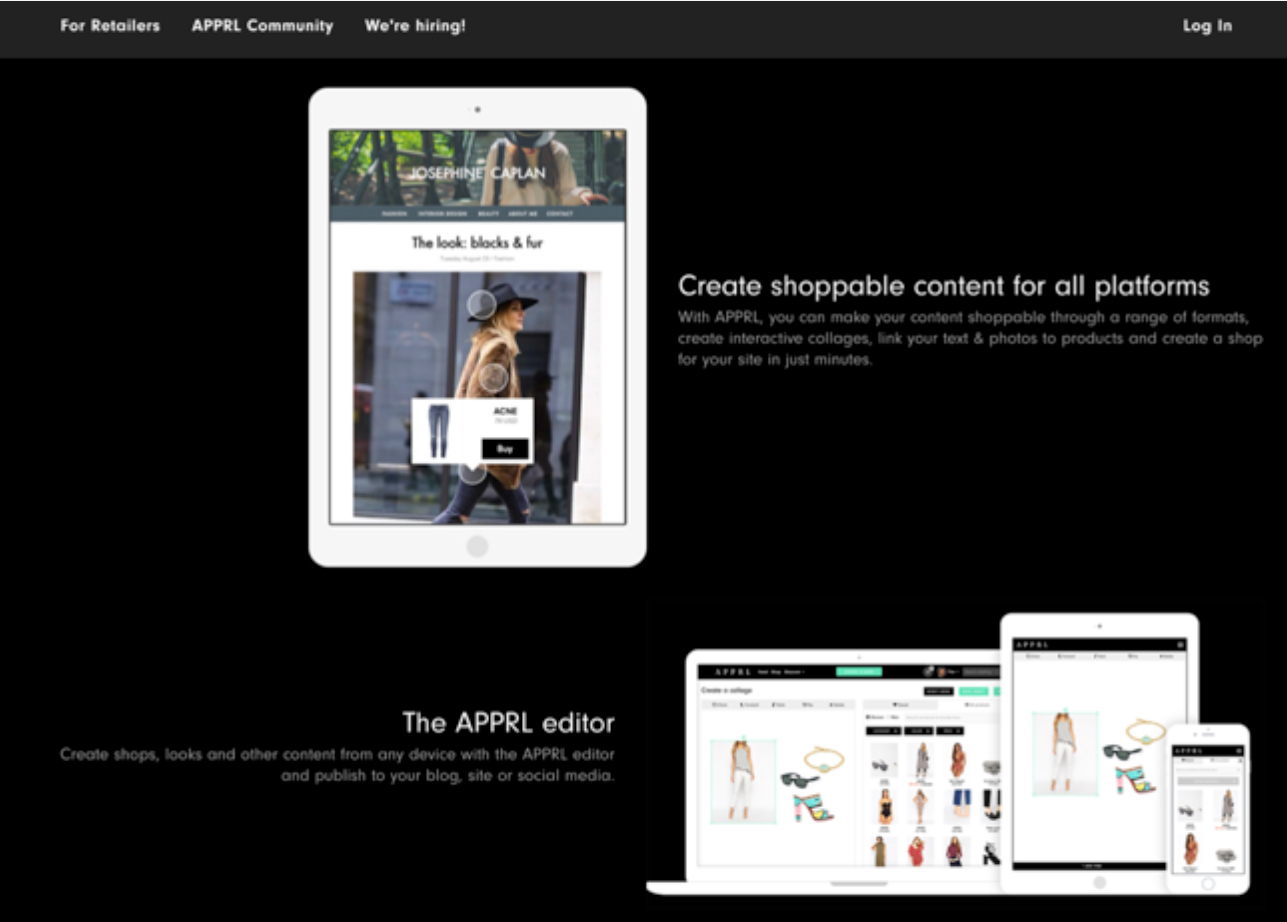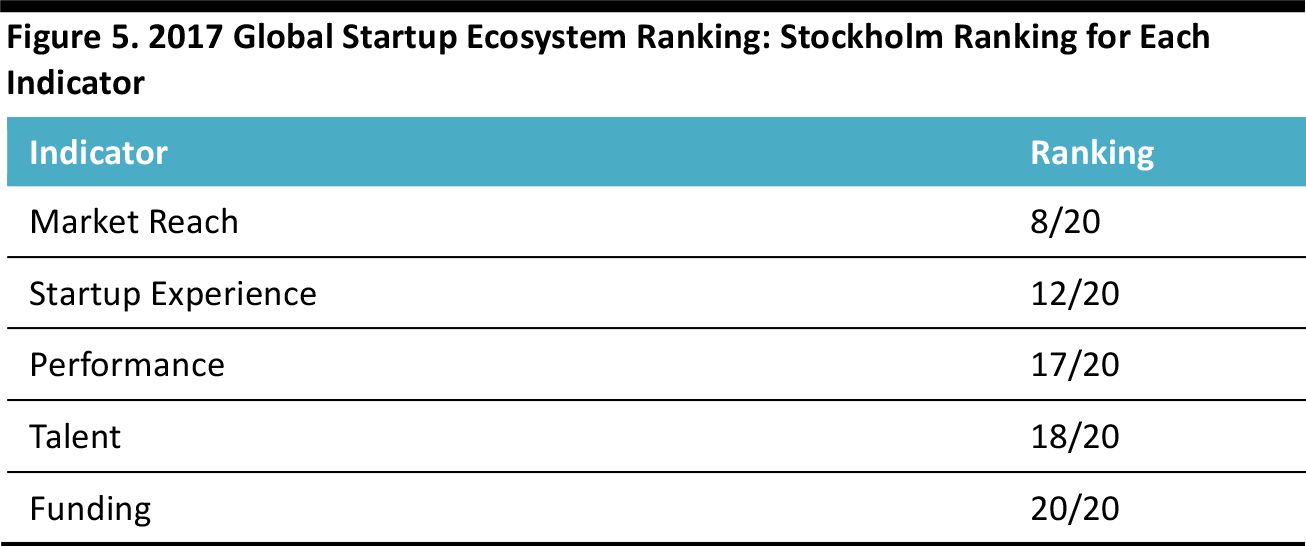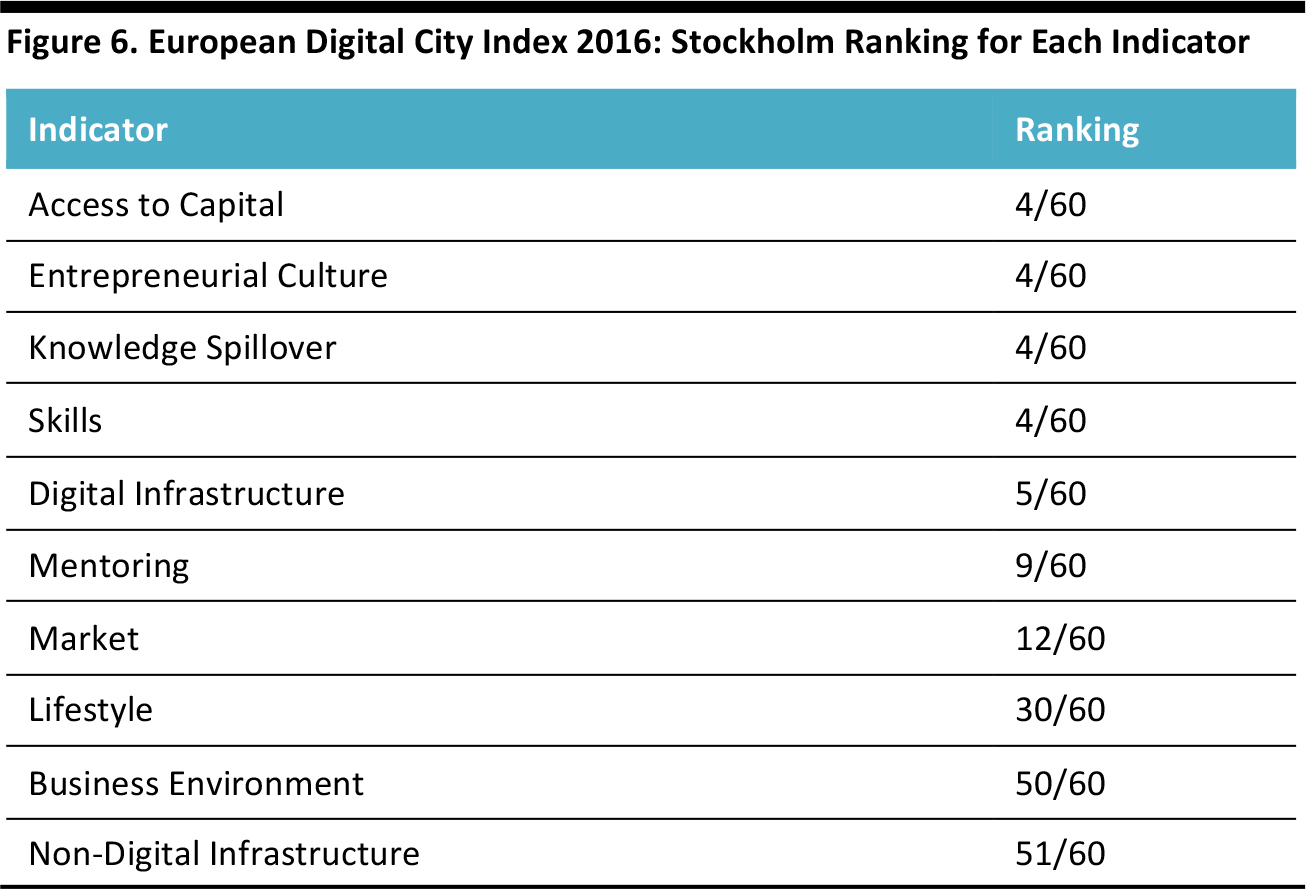
Web Developers
This is the fifth report in our series on European startup capitals. Stockholm is a leading startup hub globally and one of the top European centers for startup development. The main factors that make Stockholm the second-most-valuable startup hub in Europe include:
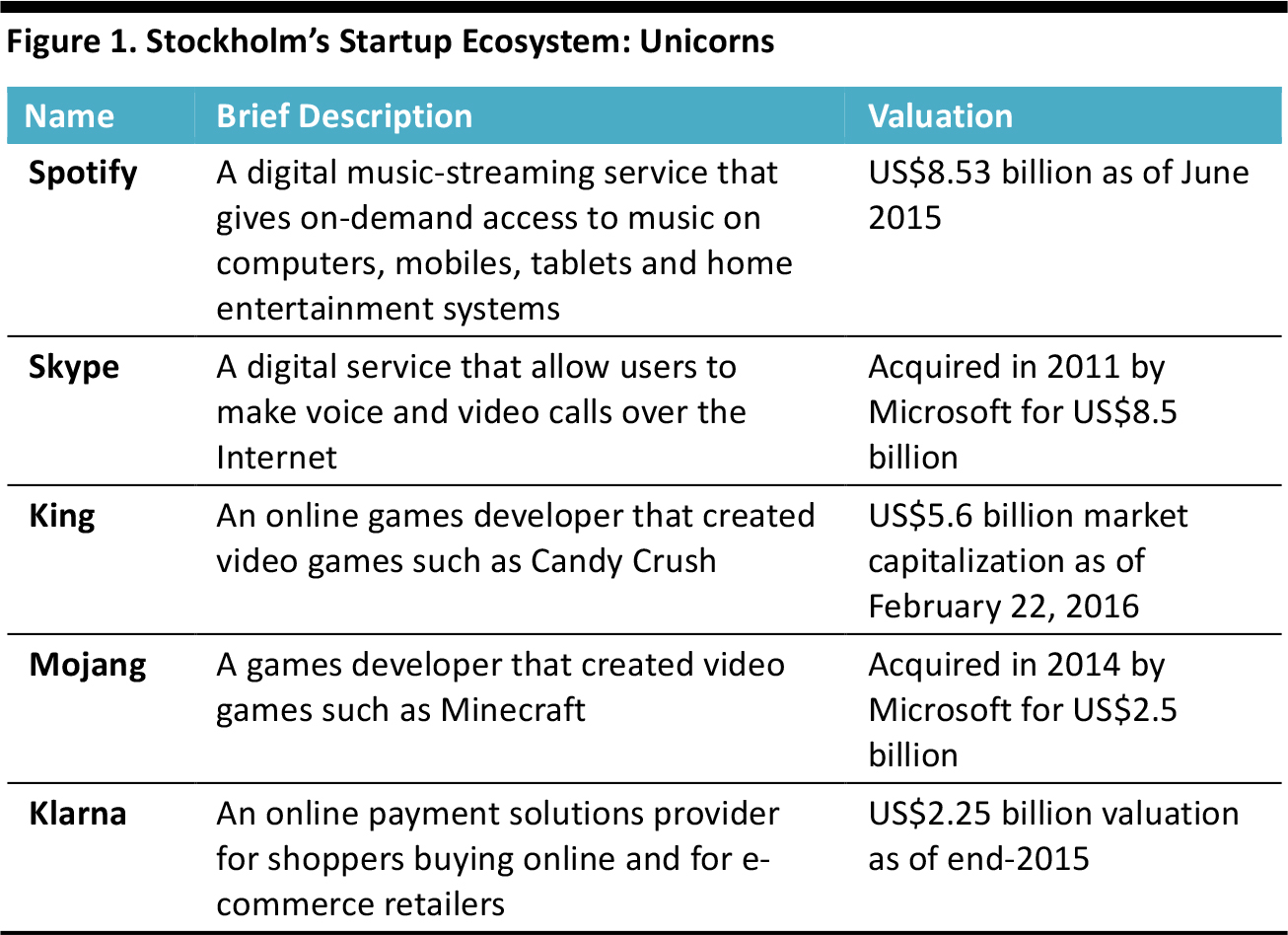
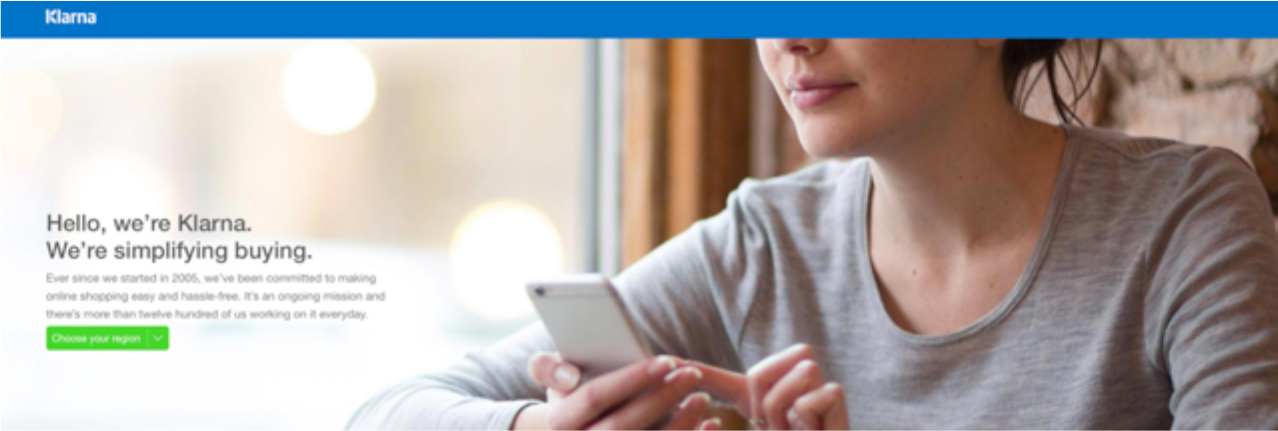
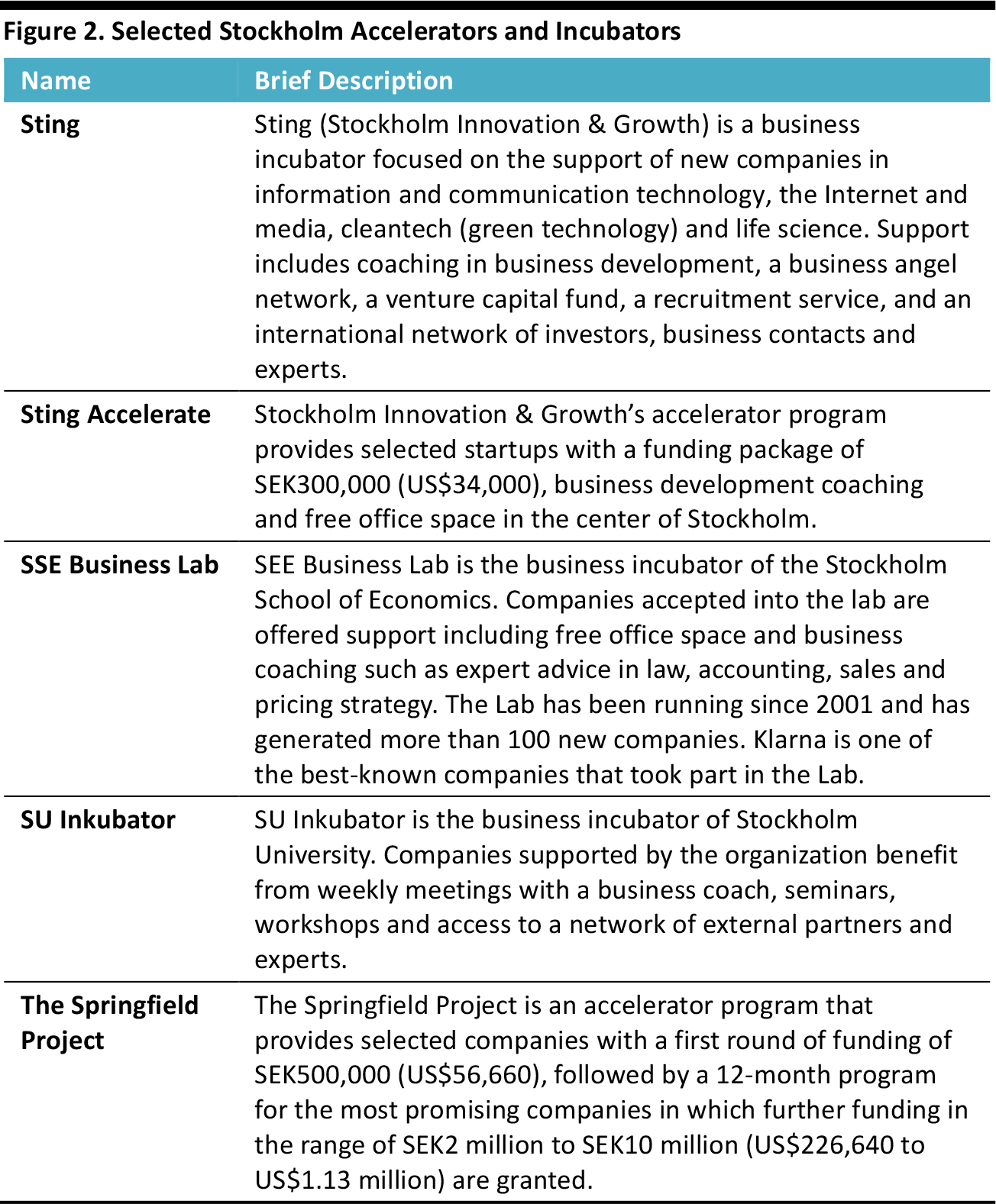

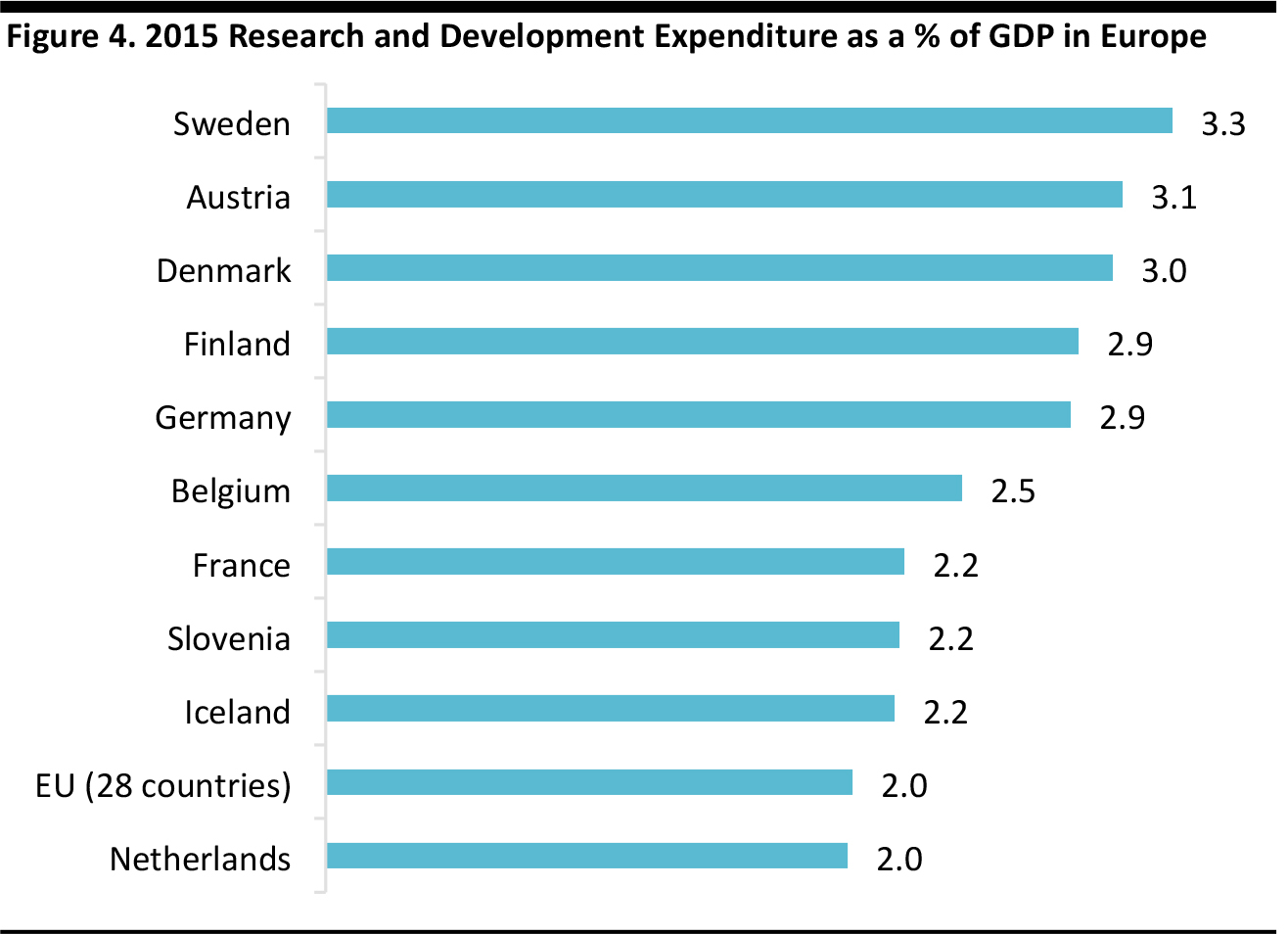
Executive Summary
This is the fifth report in our series on European startup capitals. Here, we profile retail- and fashion-focused startups based in Stockholm, Sweden. This includes online shopping finance and payment solution firm Klarna, whose valuation qualifies the company as a “unicorn” (a startup that has reached a total valuation equal to or exceeding US$1 billion), and point-of sale (PoS) solution firm iZettle. Startups in Stockholm benefit from a network of accelerators and incubators which we also detail in the report. Stockholm is the second-largest startup hub in Europe in terms of total investment, with €4.1 billion (US$4.5 billion) invested in new companies in 2016, according to the European Commission organization Startup Hubs Europe. One of the city’s more well-known companies, music streaming app service Spotify, has become the most valuable startup in Europe, with an US$8.53 billion valuation in 2015 (latest available), according to research firm CB Insight. The report examines how Stockholm compares with other startup clusters in Europe and across the globe. Startups in Stockholm benefit from one of the highest levels of investment in research and development in Europe, a vast network of high-speed broadband, the presence of top academic institutions and a highly skilled workforce with a high level of English language proficiency. We consider two rankings: Compass’s 2017 Global Startup Ecosystem Ranking, in which Stockholm ranks 14th, and nonprofit organization Nesta’s European Digital City Index 2016, in which it ranked second. Stockholm performs well on the following indicators:- Access to capital: Startups in Stockholm have better access to crowdfunding than those in any other European startup hub, and enjoy among the best availability of early-stage funding.
- Startup experience/knowledge spillover/skills: The presence of successful startups, top academic institutions and a skilled workforce all contribute to a very favorable startup ecosystem in which knowledge and experience sharing is encouraged.
- Market reach: The international orientation of Stockholm-based startups facilitates their overseas reach.
- Digital infrastructure: Companies in Stockholm operate in one of the most digitally advanced countries in the world.
Introduction
Stockholm is a leading startup hub globally and one of the top European cities for startup development. The Swedish capital is the second-largest startup hub in Europe in terms of total value invested in startups and number of unicorns. This report provides an overview of Stockholm as a startup ecosystem, and examines how the city compares with other startup clusters in Europe and across the globe. It is the fifth report in our series on European startup capitals. Our previous reports focus on London, Berlin, Paris and Amsterdam. We divide the report into two sections:- The Stockholm startup ecosystem: This section reviews the city’s key startups, accelerators and incubators, with a focus on retail-related companies.
- The context: In this section, we consider two rankings: Compass’s 2017 Global Startup Ecosystem Ranking and Nesta’s European Digital City Index 2016.
1. The Stockholm Startup Ecosystem
In this section, we give an overview of Stockholm’s startup ecosystem. The city has produced some of the world’s most valuable startups: including six unicorns, which we briefly profile here. We will also look at the startups that focus on fashion and retail and the main programs supporting them.Stockholm: The Land of Unicorns
Stockholm’s startup ecosystem has one of the highest concentrations of unicorns globally. On a per capita basis, the city is second only to Silicon Valley in terms of startup ecosystem valuation: as of 2015, it had produced US$6.3 billion per million people, second only to Silicon Valley, which produced US$8.1 billion per million people, according to Atomico. With seven unicorns generating a total valuation of US$31.1 billion, within Europe and, as of April 2016, Stockholm is second only to London in terms of total valuation from unicorns and the number of startups exceeding the US$1 billion threshold, according to GP Bullhound. Music-streaming service app Spotify emerged from Stockholm to become the most valuable startup in Europe, with an US$8.53 billion valuation in 2015 (latest available), according to CB Insight. Figure 1 lists the unicorns generated from Stockholm’s startup scene.
Source: S&P Capital IQ/Atomico/Technologist.eu/Mojang.com/CB Insight/Reuters
Stockholm-Based Retail and Fashion Startups
Sweden is home to global retail brands such as H&M and IKEA. The startup world reflects the country’s strength in retail and fashion with a number of new companies that focus on these industries. Stockholm’s startups are particularly strong in payment solutions for ecommerce, and we profile two of these companies—Klarna and IZettle—below.Klarna
Klarna provides finance and payment options to online shoppers and payment services to e-commerce retailers. Through Klarna’s services, shoppers buying online can pay over time, pay after delivery and use their Klarna account for one-click purchases online. Conversely, Klarna’s solutions can help retailers increase conversion rates and basket value by enabling their website to process one-click payment and to accept consumer financing solutions. The company was founded in 2005 in Stockholm and grew to become a unicorn in 2013, according to Atomico. The company handles 10% of all online transactions in Europe, according to news agency Reuters.
Source: klarna.com
iZettle
iZettle is a PoS service that enables businesses to accept card payments. iZettle transforms a regular smartphone or tablet into a point of sale through which retailers can process card payments, get sales metrics to analyze the health of the business and manage inventory. iZettle’s offering consists of an app through which the retailer can visualize the transaction and the metrics, and a physical card reader through which card payments can be processed. The company also provides financing services tocompanies to help grow their business. iZettle was founded in 2010 in Stockholm and has reached a total equity funding value of US$500 million, as of January 2017, according to tech news website Techcrunch.Source: izettle.com
Friday Tieday
Friday Tieday is an online retailer of men’s accessories that combine Swedish design with Italian tailoring. It offers ties, pocket squares and scarves.Source: fridaytieday.com
South Lane
South Lane is a fashion accessories brand and online retailer that focuses on Swedish minimalist design. The company was launched in 2011 and sells watches, sneakers and wallets through its own portal and via third-party retailers including Farfetch and Harvey Nichols.Source: south-lane.com
Apprl
Apprl is a social commerce platform that helps companies to create online shopping content for a range of platforms including sites, blogs and social media. Apprl enables companies to get in touch with fashion influencers for the promotion of their products. The service is used by leading retailers including ASOS and Net-a-Porter. Apprl was founded in Stockholm in 2011 and reached a total equity funding of US$1.76 million, as of 2016, according to Crunchbase.Source: Apprl.com
Accelerators and Incubators in Stockholm
Stockholm is home to a number of accelerators and incubators. These offer various types of support to startups, which we describe in more depth in our report Accelerators & Incubators in London.
Source: Startus Magazine
2. The Context
In this section, we consider the environment for startups, accelerators and incubators in Stockholm. Stockholm:Stockholm: Europe’s Second-Most-Valuable Startup Hub
Stockholm is a top startup hub in Europe. The city featured the second highest total investment level in startups in 2016, at €4.1 billion (US$4.5 billion), and was surpassed only by London, according to Startup Hubs Europe. The level of investment that the city’s startups manage to attract is remarkable considering Stockholm’s small size compared to its European competitors. For example, the Swedish capital had only 7,991 new companies as of 2016, while London and Berlin had 326,034 and 169,752 respectively, according to Startup Hubs Europe.
Data are annual and not cumulative. Source: Startup Hubs Europe
The high level of investment in the Stockholm startup scene is reflected in the number of unicorns that have come out of the city. Within Europe, the Swedish capital is second only to London in terms of number of unicorns. New tech companies in Stockholm enjoy an overall favorable business environment. Sweden invests significantly in research and development, as shown below. The Swedish capital has one of the best digital infrastructures in Europe, with a vast network of high-speed broadband. Startups in the city benefit from the presence of top academic research institutions—such as KTH Royal Institute of Technology and the Stockholm School of Economics—that run incubation programs and contribute to the growth of the talent pool from which companies can recruit. The thriving tech scene, with companies such as telecommunication firm Ericsson and the many successful startups contribute to knowledge spillover, which new companies operating in the city can benefit from.
Source: Eurostat
How Stockholm Compares with Other Startup Hubs
In order to better understand which characteristics make Stockholm one of the top startup ecosystems globally, we considered two indexes—one global and one regional—which rank startup hubs according to specific indicators: the 2017 Global Startup Ecosystem Ranking and the European Digital City Index 2016.Stockholm Ranks 14th in the 2017 Global Startup Ecosystem Ranking
Stockholm is the 14th-best ecosystem for startups globally, according to the 2017 Global Startup Ecosystem Ranking compiled by Compass, a San Francisco-based online-analytics company. The index ranks startup hubs on five criteria:- Performance of the funding invested in the startups
- VC funding and the time it takes to raise capital
- Talent availability
- Market reach
- Startup experience, such as mentorship by veteran startup founders
Note: Ranking is out of 20, with 1/20 the best result and 20/20 the worst result. Source: 2017 Global Startup Ecosystem Ranking
Stockholm Ranks Second in the European Digital City Index 2016
The European Digital City Index 2016 ranks 60 European cities based on how well they support digital entrepreneurs. It is compiled by Nesta, a UK innovation and investment charity. The rankings are based on indicators such as availability of financing and skilled workers, and quality of supporting infrastructure and networks. In 2016, Stockholm ranked second, only preceded by London. The city is among the top-ten performers in six out of 10 indicators. In particular, Stockholm excels in the following indicators: Access to capital: Startups in Stockholm have better access to crowdfunding than any other European startup hub and ranks sixth out of 60 in terms of availability of early-stage funding. Entrepreneurial culture: Stockholm shows the highest level of trust in Europe among members of the business community. The city also features a significant history of successful digital companies, with one of the highest number of unicorns in Europe. Knowledge spillover: Startups in Stockholm enjoy the fourth-highest R&D expenditure per capita in Europe and benefit from the presence of top academic research institutions. Skills: Startups in Stockholm enjoy some of the best access to graduates, ICT employees and support employees (such as legal, accounting and marketing) in Europe.Digital infrastructure: Companies in Stockholm enjoy one of the fastest broadband speeds and one of the most developed fibre Internet networks in Europe.Note: Ranking is out of 60, with 1/60 the best result and 60/60 the worst result. Source: Nesta
Key Takeaways
Stockholm is the second-largest startup hub in Europe in terms of total investment, with €4.1 billion (US$4.5 billion) invested in new companies in 2016, according to Startup Hubs Europe. The main factors that make Stockholm one of the leading startup hubs include:- Access to capital: Startups in Stockholm have better access to crowdfunding than any other European startup hub and some of the best availability of early-stage funding.
- Startup experience/knowledge spillover/skills: The presence of successful startups, top academic institutions and skilled workforce all contribute to create a very favorable startup ecosystem in which knowledge and experience sharing is encouraged.
- Market reach: The international orientation of Stockholm-based startups facilitates their overseas reach.
- Digital infrastructure: Companies in Stockholm operate in one of the most digitally advanced countries in the world.
